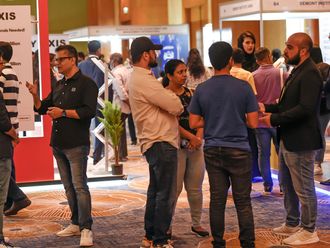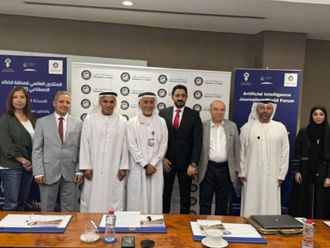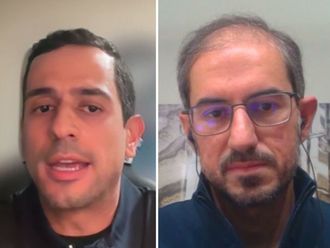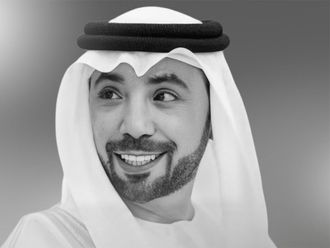Abu Dhabi: All 11,000 public school teachers across the emirate of Abu Dhabi today start a week of professional development activities designed to improve the quality of teaching.
The training initiative, entitled Tanmia (an Arabic word that means ‘development’), will provide educators from 256 public schools with 20 hours of professional development in fields and courses of their own choosing.
“These activities will allow our teachers to take ownership of their own skill development and also interact with their peers to enhance their own qualifications,” said Dr Amal Al Qubaisi, director-general at the emirate’s education sector regulator, the Abu Dhabi Education Council (Adec).
Tanmia workshops are being conducted this week, corresponding with the last week of winter school vacations in the UAE. For four days, six international training providers, namely the Centre for British Teachers, Cognition Education, GEMS Education, Nord Anglia Education and SSAT, as well as the University of Florida, will offer a variety of modules. Among the topics are special needs education, 21st century skills, planning for high quality instruction and English language learning strategies. Teachers will then spend the last day of the week exchanging information with one another.
“Such networking is key towards enhancing teacher’s knowledge, especially as they benefit from one another’s practical experiences,” Dr Amal said.
She told Gulf News that the development of 21st century skills like collaboration, creativity and critical thinking, as well as strategies to differentiate teaching for different learner types in the classroom, are two of the workshops most popular among teachers attending the training.
As per Adec regulations, teachers must acquire 30 hours of training each academic year. In addition to Tanmia activities, teachers can avail of further professional development during the school year.
Officials said teachers’ training needs are assessed at the start of each academic year through questionnaires, and these responses are used to determine what types of training topics should be offered.
Teaching quality at the emirate’s 189 private schools has also long been a concern, and Dr Amal said that the Adec is looking at ways to partner with private institutions for professional development initiatives. As revealed at the start of the 2014-2015 academic year, private schools still need to improve in the provision of differentiated classroom teaching, and at maintaining consistently high quality across classes.
“Education must adhere to the same high standards at both public and private institutions, and we are willing to work with private schools to meet their training requirements. At the same time, the biennial Adec inspections have also played a significant role in raising teaching quality,” the director-general said.












